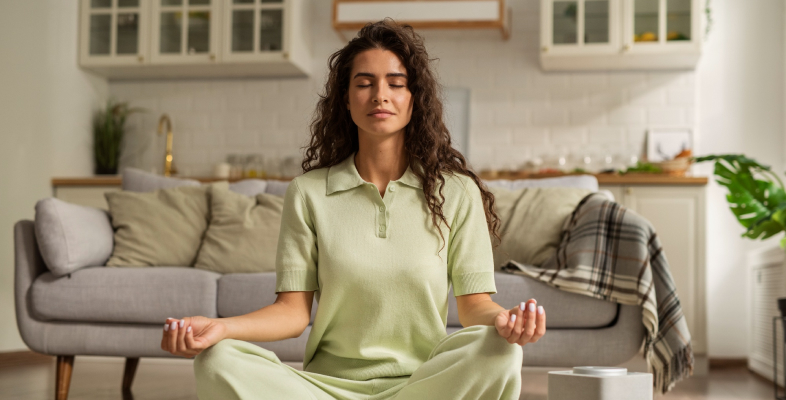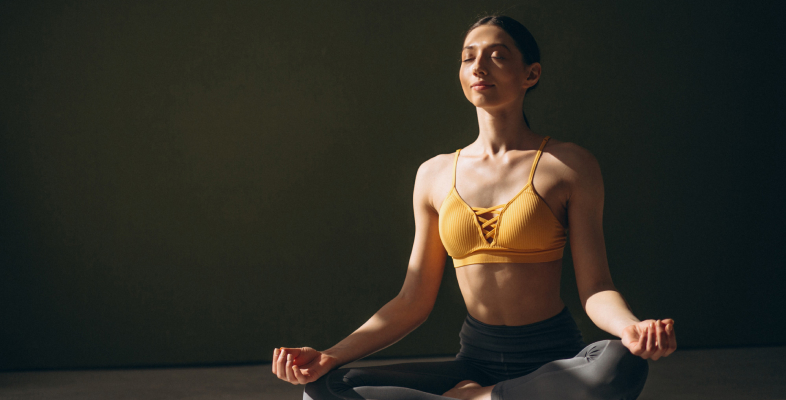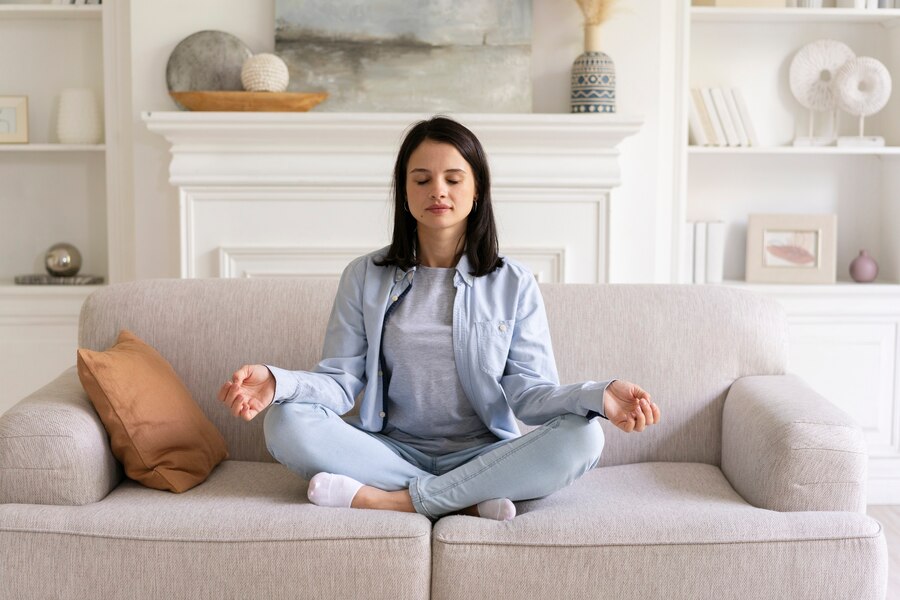Meditation FOR Mental Health; 3 Ways TO Enhance Your Practice
Considering the hectic lives, we lead in today’s modern world; it is crucial to take care of one’s mental health. And the most natural and effective way to boost your mental health is through meditation.
Meditation puts you in a sense of calm and peaceful zone that benefits not only your emotional well-being but your overall health, as well. Besides, it helps you easily cope with everyday stress and anxiety by refocusing your attention on the present moment. However, many people find it hard to sustain their practice or have a tough time meditating.
In this article, we’ve shared three ways you can enhance your meditation practice.
How does meditation help our mental health?
Meditation is the practice of slowing down our thoughts and hit reset. It is a practice where an individual takes minutes to focus on a single object or thought that can help restore and reconnect with the present time.
This technique has been around for ages, helping individuals since centuries to slow down and re-centre their attention to the present. Meditation is one of the most implemented techniques to help your body relax and de-stress. However, some people may not find it helpful. Yes! There are people who find other ways to calm down and that is just something very natural and humanistic.
The reason why this technique is thought to be effective for individuals is because there is a body-mind connection that helps recenter our attention.
Meditation also gives us a sense of calm and peace that helps in de-stressing. The overall wellbeing must be maintained for an individual to function well and perform their tasks.
Components Of Meditation

There are different aspects of meditation that you must take care of to achieve complete peace of mind. Here are those components:
Slow down your breathing

When your breathing is relaxed, you can focus on your meditation more efficiently. It is important for you to slow down your breathing. This involves even-paced, deep breathing that is intentional. Use the muscles between your chest to expand the lungs, then slowly let your breath out.
This will help you take deep breaths which are helpful in calming down the entire body. This technique is known as diaphragmatic breathing, which helps to take in more oxygen. This way you breathe better while also helping your chest muscles expand.
Focus your attention

Another step of meditating is focusing your attention on one thought or object so that you can cut off the external noise. One of the most important elements of meditation is breathing, which helps in freeing your mind from everything that is stressing you out.
This way you can focus on things such as objects, images or even you’re breathing. Concentrating on your breath is one of the most effective ways to tone down the surrounding noise (meditate in technical terms)
Quiet setting

If you are trying meditation for the first time, it can get difficult to nail it at the first go. Some of the hacks that helped me meditate initially was to find a quiet spot so I can focus on my breath or any other calming thought/scenario.
Finding a quiet spot can help you avoid distraction and master the art of meditation. The less things surrounding you, the better your concentration will be.
Comfortable Position

Practicing meditation in a comfortable position is another one of the most important things that can help you practice mindfulness through meditation.
The position may be sitting cross-legged on the floor, lying down with your back on the floor. Another one of the positions to help you get comfortable enough to meditate is maintaining a good posture by keeping your back aligned with the wall. You will get adequate support.
Details About 3 Ways TO Meditation FOR Mental Health
1. Stay Calm; Let Thoughts Come & Go

If you’ve just started meditating, chances are you get easily irritated and distracted by your thoughts. But, instead of getting demotivated and leaving your session abruptly, it is advised to stay calm throughout the process and observe everything. Every time you try to concentrate, thousands of thoughts will come in the way, and you might get stuck with them. But that’s not how you learn meditation.
The proper technique is to focus on your breathing while allowing thoughts to come and go. Do not get stuck with them; rather, develop the patience to let go of them and allow yourself to immerse deeply in your breathing.
2. Work On Improving Your Focus

To gain the positive effects of meditation, it is vital that you have a sharp focus and concentration. And this is something that you can develop over time with practice. One of the popular and effective ways to improve your focus is by consuming herbal supplements like CBD.
Most people today prefer vaping CBD as it instantly boosts your focus and puts you in a relaxed space. There are different types of vaping devices that you can choose from as per your preference, or you can also order your Lookah today at Mind Vapes. Whatever device you use, make sure to take the supplement at least half an hour before your practice.
3. Schedule A Time To Meditate

One of the biggest hurdles to meditation is finding the right time to meditate. If you randomly meditate every day at different times, you might not feel the relaxing effects. Hence, it is vital to fix a time when you can easily meditate without any distractions or disturbance.
Plus, try to meditate in the same location every day, at least for a few weeks, till you get in a flow and know how to meditate properly. If a particular space doesn’t work for you, do not hesitate to change the location and find a better environment where you feel comfortable.
Final Thoughts
Nothing can be better than meditation if you want to cope with everyday stress and anxiety. Take out at least 15-20 minutes every day to sit alone with yourself, observe your thoughts, and practice relaxation. Practicing this for a consistent period of time can do wonders for your mental health. So, next time you try to meditate, try the above-mentioned ways to enhance your practice.
Read Also:



